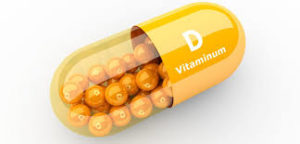
What is vitamin D. Vitamin D is a chemical that the body needs to function properly. We needed vitamin D if we want to function properly and be healthy. Also, it helps fight off diseases, illnesses and strengthen the bones. The best source of Vitamin D is the sunlight. The sunlight helps the body product vitamin D. Some people drink milk to get vitamin D, and some people take cod liver oil. Nevertheless, the best source of Vitamin D is the sun. Once you get vitamin D in the skin from the sun or nutritional supplement, it is processed by the body and then used.
Vitamin D is also important because it regulates how much calcium gets into the blood, gut and bones. Furthermore, Vitamin D help fight infections and keep the cells healthy. Calcium and phosphorus are essential for developing the structure and strength of your bones, and you need vitamin D to absorb these minerals. Even if you eat foods that contain a lot of calcium and phosphorus, without enough vitamin D, you can’t absorb them into your body. Vitamin D is important for general good health,
Benefits Of Vitamin D
- Immune system, which helps you to fight infection
- Anti-cancer effects
- Brain development
- Cardiovascular function, for a healthy heart and circulation
- Muscle function
- Respiratory system –for healthy lungs and airways
- Strengthen bones
- Manage calcium In the gut, blood and bones
- Help cells communicate
How Does Vitamin D Work
Vitamin D mainly comes from your skin when it is exposed to sunlight. After that, your body goes through a number of chemical processes to change it so that your body can use it.
When your skin is exposed to the sun, it produces vitamin D and sends it to your liver. If you take supplements or eat foods that contain vitamin D, your gut also sends the vitamin D to your liver. From here, your liver changes it to a substance called 25(OH)D. When your doctor talks about your vitamin D levels, he means the amount of 25(OH)D you have in your blood.
This chemical is sent all over your body where different tissues, including your kidney, turn it into activated vitamin D. This activated vitamin D is now ready to perform its duties. From here, it gets a little complicated, but you can think of activated vitamin D working in two ways:
Signs Of A Vitamin D Deficiency
- You Have Darker Skin
African Americans are at greater risk of vitamin D deficiency, because if you have dark skin, you may need as much as 10 times more sun exposure to produce the same amount of vitamin D as a person with pale skin.
- You Feel “Blue”
Serotonin, the brain hormone associated with mood elevation, rises with exposure to bright light and falls with decreased sun exposure. In 2006, scientists evaluated the effects of vitamin D on the mental health of 80 elderly patients and found those with the lowest levels of vitamin D were 11 times more prone to be depressed than those who received healthy doses.
You’re 50 or Older
As mentioned, as you get older your skin doesn’t make as much vitamin D in response to sun exposure. At the same time, your kidneys become less efficient at converting vitamin D into the form used by your body and older adults tend to spend more time indoors (i.e. getting even less sun exposure and therefore vitamin D).
- You’re Overweight or Obese (or Have a Higher Muscle Mass)
Vitamin D is a fat-soluble, hormone-like vitamin, which means body fat acts as a “sink” by collecting it. If you’re overweight or obese, you’re therefore likely going to need more vitamin D than a slimmer person.
Your Bones Ache
Aches and pains, especially in combination with fatigue, end up being misdiagnosed as having fibromyalgia or chronic fatigue syndrome.
- Head Sweating
Classic signs of vitamin D deficiency is a sweaty head. In fact, physicians used to ask new mothers about head sweating in their newborns for this very reason. Excessive sweating in newborns due to neuromuscular irritability is still described as a common, early symptom of vitamin D deficiency.
You Have Gut Trouble
Remember, vitamin D is a fat-soluble vitamin, which means if you have a gastrointestinal condition that affects your ability to absorb fat, you may have lower absorption of fat-soluble vitamins like vitamin D as well. This includes gut conditions like Crohn’s, celiac and non-celiac gluten sensitivity, and inflammatory bowel disease.
Most Common Health Problem For Vitamin D Deficiency
- muscle/joint pain and weakness
- bone pain
- tiredness or fatigue
- depression
Foods That Have The Best Source Of Vitamin D
- Salmon
- Sardines
- Cow Milk
- Eggs
- Tuna
- Mushrooms
List Of Vitamin D Supplements
| Bayer Citracal Slow Release 1200 | Jamieson D | Shaklee Osteomatrix | |||
| Andorra Life Collagen Calcium | Jarrow Formulas Bone-Up | Simply Right (Sam’s Club) Vitamin D3 | |||
| Bayer Citracal Petites | Kirkland Signature [Costco] Calcium Citrate Magnesium And Zinc | Solgar Calcium Citrate with Vitamin D3 | |||
| Bayer Flintstones Healthy Bone Support Calcium & Vitamin D3 | Life Extension Vitamin D3 | Source Naturals Vitamin D-3 | |||
| Bluebonnet Earth Sweet Chewable Vitamin D3 | Metagenics D3 | Spring Valley [Walmart] Calcium | |||
| Caltrate 600+D Plus Minerals | Nature Made Calcium Magnesium Zinc | Swanson High-Potency Dry Vitamin D-3 | |||
| Carlson Super Daily D3 Baby | Nature Made Vitamin D 2000 IU | Trader Joe’s Calcium Citrate with Vitamin D | |||
| ChildLife Liquid Calcium With Magnesium | Nature’s Bounty D3 | TwinLab D3 Dots | |||
| Country Life Bone Solid | Nature’s Way Alive Calcium Bone Formula | USANA Active Calcium | |||
| CVS Pharmacy Calcium | Nature’s Way Alive Calcium Gummies | USANA Vitamin D | |||
| DG Health [Dollar General] Calcium | NOW Vitamin D-3 & K-2 | Viactiv Calcium Plus D – Milk Chocolate | |||
| Finest Nutrition (Walgreens) Calcium | Nutrilite Cal Mag D Advanced | Vitamin World Sunvite Vitamin D3 | |||
| Garden of Life Vitamin Code RAW D3 | Puritan’s Pride Sunvite Mega-Potency Vitamin D3 5000 | Whole Foods Vitamin D3 | |||
| GNC Calcium Plus 1000 with Magnesium & D3 | Rainbow Light Food Based Calcium | Yummi Bears Vegetarian Sour Calcium + Vitamin D3 | |||
| GNC Vitamin D-3 1000 |
